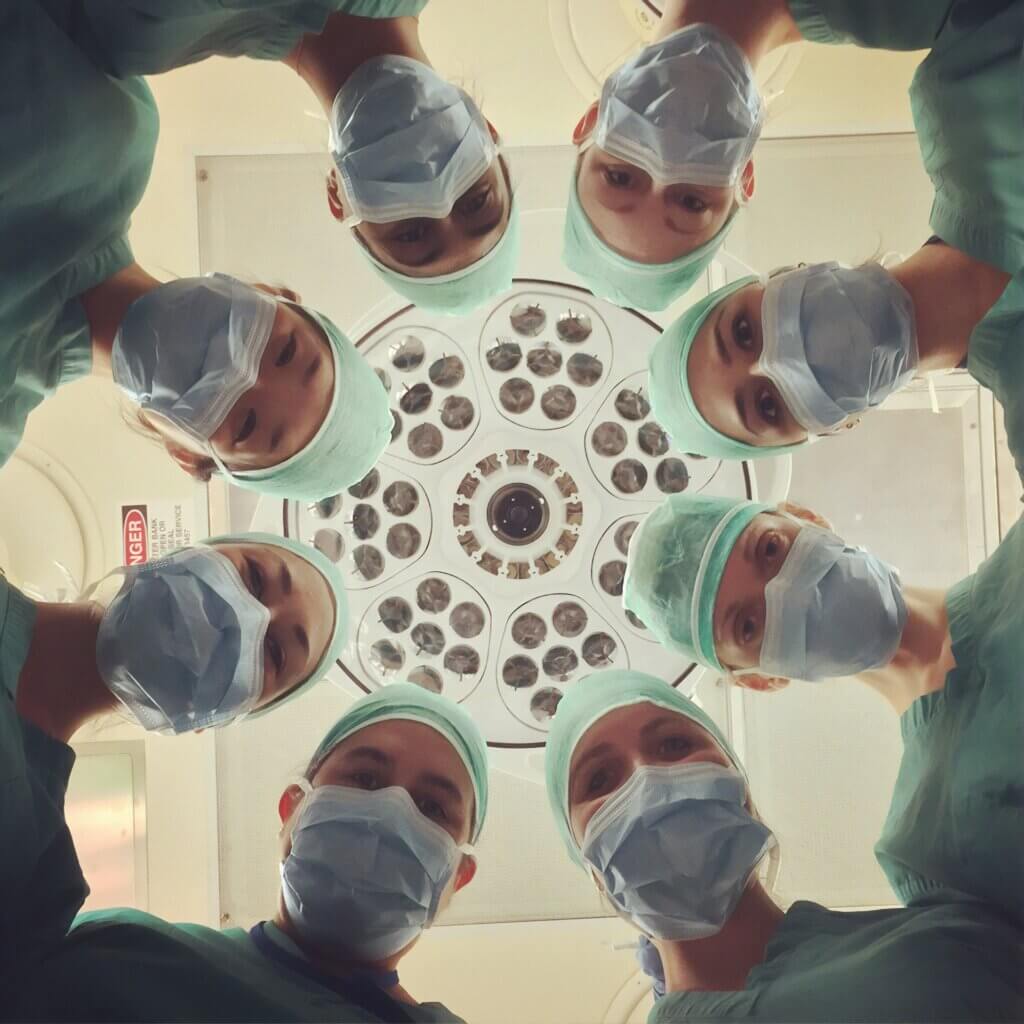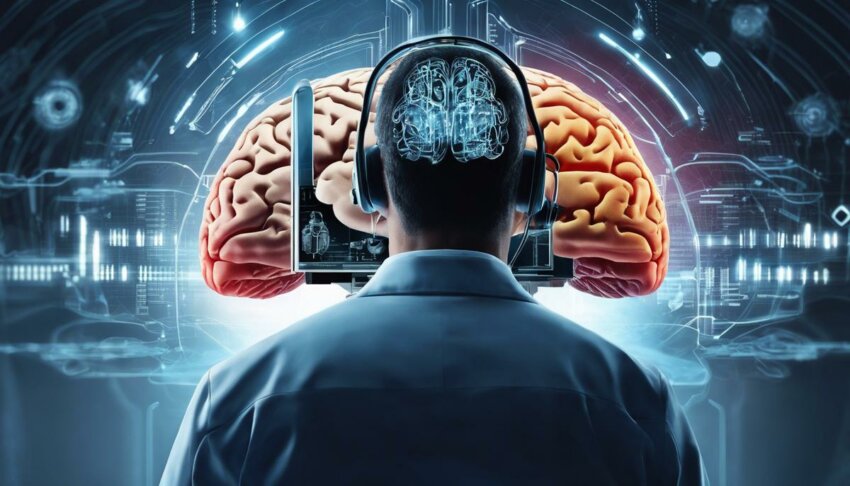We may earn money or products from the companies mentioned in this post.

AI Revolutionizing Healthcare
The transformative power of artificial intelligence (AI) has begun to permeate the healthcare industry, wielding the potential to revolutionize how medical professionals diagnose, treat, and develop therapies for patients. As AI revolutionizing healthcare forges ahead, it brings forth a new era of precision in medical diagnosis, cutting-edge customization in treatment plans, and unprecedented speed in drug development. Embarking on a journey through the intersection of AI and healthcare, we uncover the novel ways in which machine learning algorithms and data-driven insights are propelling medical practices into a future where quality care is both personalized and more accessible.
AI in Medical Diagnosis
The AI Diagnostic Revolution: Medicine’s New Frontier
When delving into the realm of medical diagnosis, it’s impossible to overlook the transformative impact of Artificial Intelligence (AI). Picture this: a world where catching a disease early is not just probable, but almost guaranteed. AI is making waves in healthcare by bringing in tools that can analyze massive amounts of data far beyond human capability. It’s not just about replacing the old ways; it’s about augmenting them to boost efficiency and accuracy. Doctors, aided by AI algorithms, can now identify patterns in patient data that lead to early and more precise diagnoses.
In the ever-evolving sphere of healthcare, AI algorithms are proving to be game-changers in spotting nuanced details in medical imaging. For instance, AI-driven programs scrutinize X-rays and MRI scans with a level of detail that surpasses the human eye. They’re trained using thousands of images, learning to detect abnormalities such as tumors and fractures quickly, reducing the time patients wait anxiously for results. Moreover, in areas where access to specialists is limited, AI diagnostic tools act as critical support for general practitioners, ensuring that no symptom goes unnoticed.
Beyond imaging, AI’s ability to sift through electronic health records (EHRs) is throwing the doors wide open to preventative medicine. With the help of complex algorithms, AI systems can now predict patients’ future health risks by identifying patterns and red flags in their medical history. This foresight has an incredible potential to save lives by alerting healthcare providers to intervene before a condition becomes serious. As AI continues to learn and grow, it’s poised to become an inseparable ally of the medical field, ushering in a new era of healthcare where AI and human expertise work hand in hand to outsmart disease and push the boundaries of what’s possible in medical diagnosis.

Personalized Treatment Plans
When it comes to tailoring treatment plans to individuals, AI is a game-changer in personalized medicine. Imagine a future where medicine isn’t just based on the general population but optimized for each person’s unique genetic makeup, lifestyle, and environment. That’s exactly where AI steps in—it offers the tools to drill down into the genetic level of healthcare, taking into account a person’s genome to predict how they will respond to different treatments. This precision avoids the trial-and-error approach often associated with medical treatments and heads straight for the most effective solution.
Additionally, AI’s role in drug development is particularly promising. By analyzing biological data and understanding disease mechanisms, AI helps identify potential drug candidates at a speed and scale unimaginable to human researchers. Through machine learning and pattern recognition, AI systems are helping pharmaceutical companies to discover new drugs, repurpose existing drugs for different diseases, and streamline clinical trials. These advances are not only speeding up the time it takes to bring new drugs to market but also slashing the costs, making personalized medication more accessible to patients in need.
Beyond diagnosis and treatment, AI is facilitating continuous health monitoring and care. Wearable devices equipped with AI are collecting data 24/7, keeping tabs on vital signs and flagging any anomalies that might suggest a deviation from a person’s baseline health status. This vigilant watch can prompt early intervention and prevent aggravation of conditions. By merging real-time data with personal medical records, AI models can construct comprehensive health narratives for individuals—narratives that are as informative and actionable for seasoned medical practitioners as they are for the individuals themselves.

Drug Discovery and Development
Beyond diagnostic prowess, Artificial Intelligence (AI) is shaping to be a game-changer in drug discovery, a process traditionally notorious for its staggering costs and lengthy timelines. AI’s empowering touch is ushering in an era of more efficient pharmaceutical research and development, particularly by accelerating the identification of potential drug candidates. By leveraging complex algorithms, AI systems can swiftly analyze biological data and unearth compounds likely to be effective against specific diseases. This can be particularly telling in the pursuit of treatments for complex conditions like cancer or Alzheimer’s, where time is as critical as the treatment itself.
AI’s burgeoning role in drug discovery mirrors a grand puzzle-solving venture, where AI platforms can predict how different chemicals will interact with targets in the body. Consider the laborious method of trial and error that has governed drug development for decades – a costly and time-consuming craft, indeed. Now, picture an AI-driven model sifting through databases of chemical compounds, rapidly dispensing with unsuitable options and zoning in on probable matches with high precision. This isn’t merely theoretical; AI has already been pivotal in identifying promising compounds within days rather than years, thereby significantly trimming the time taken to move from concept to clinic.
While machines are taking the helm in these preliminary voyages of pharmaceutical exploration, the human touch retains its relevance. AI doesn’t replace researchers but instead allows them to focus their expertise where it’s most needed – in creative problem solving and critical decision making. With the smart application of AI, the synergy of human and machine intelligence steers the ship toward more effective drugs, available faster and potentially at lower costs, benefiting both patients and the medical ecosystem at large. AI as an ally could mean a future where personalized medicine isn’t just a lofty ideal but a widespread reality, with treatments attuned to the individual’s unique biological narrative, all thanks to the unprecedented computational might of artificial intelligence.

Ethical Considerations of AI in Healthcare
Delving deeper into the ethical implications, it’s crucial to consider the nuances of patient autonomy and consent in the AI-driven healthcare landscape. As these systems sort through personal data and craft customized health strategies, questions inevitably arise about who truly ‘owns’ this data. The digitization of personal health information ushers in concerns about privacy, where leaks or breaches could have profound personal and financial repercussions. Robust discussions must tackle who has the right to access this wealth of sensitive data and to what extent patients should have control over their medical narratives and potential sharing.
Furthermore, the promise of precision medicine and individualized care illuminates issues of fairness and equity in healthcare delivery. AI’s reliance on vast datasets can inadvertently perpetuate existing biases if the data reflects historical inequities. For instance, an AI system trained predominantly on data from one demographic might be less accurate for others. This poses a substantial risk of reinforcing disparities in healthcare outcomes— a situation that must be preemptively addressed through diverse and inclusive data collection methods. Ensuring that AI’s trajectory bends toward equitable healthcare enhancement for all remains a moral imperative for developers and healthcare practitioners alike.
Lastly, balancing the human touch with technological efficiency encapsulates a core ethical dilemma. While AI can shoulder some workload, healthcare’s essence—compassion and empathy—must not be sidelined. It’s essential to maintain a therapeutic relationship where patients feel heard and understood, not merely analyzed by an algorithm. This human element in decision-making ensures that care remains patient-centric rather than solely efficiency-driven. The interplay between nurturing the patient-caregiver relationship and integrating AI forms an ethical crux shaping how technology is embraced without detracting from the human experience in healthcare.

As AI continues to advance, it weaves a complex web of outcomes affecting patients, medical practitioners, and the pharmaceutical industry alike. The accelerated evolution of healthcare through AI presents promising horizons that include precise diagnostic capabilities, bespoke treatment options, and a faster path to effective medications. Nonetheless, the embrace of this technological marvel must be balanced with unwavering attention to the ethical standards that underpin the sanctity of the healthcare profession. Ensuring the fair and responsible application of AI in healthcare is not only imperative for maintaining public trust but also for guiding the journey of medical innovation towards the most benevolent outcomes for society at large.
You Might Also Like – 8 Benefits of Healthcare Apps

